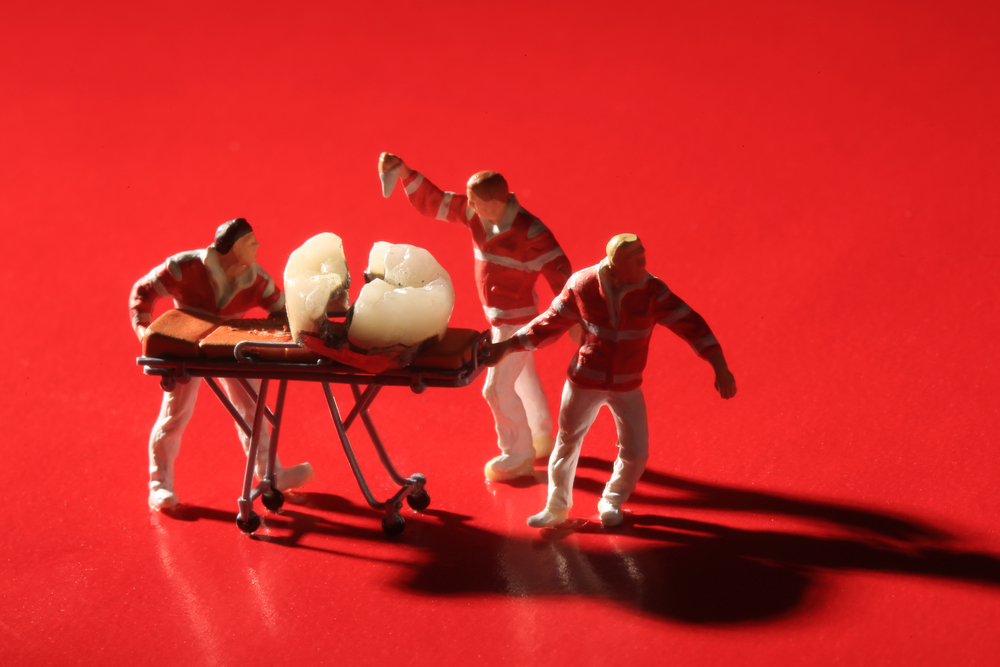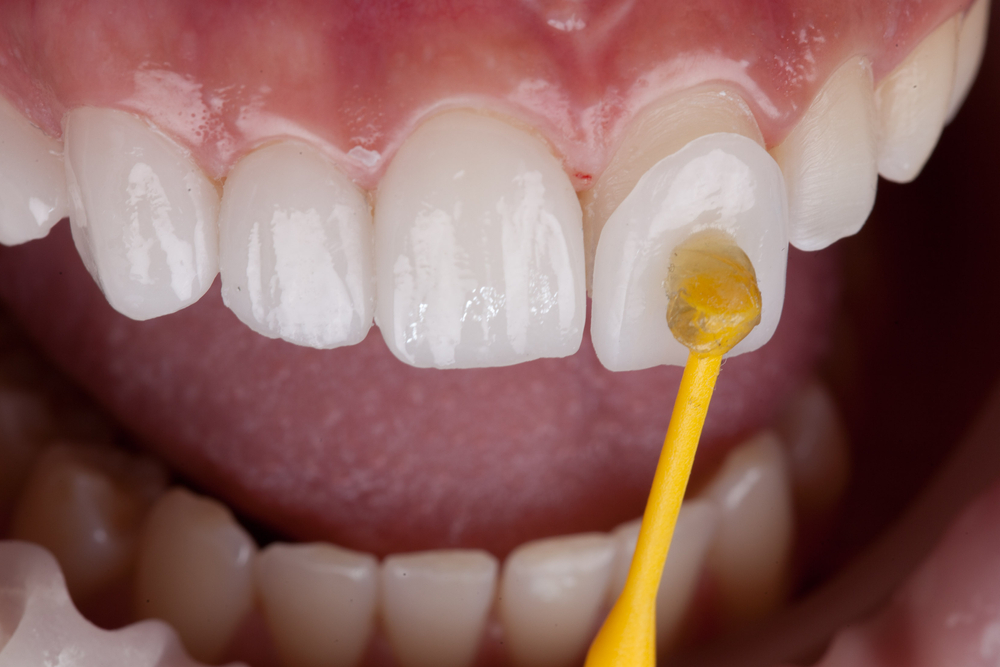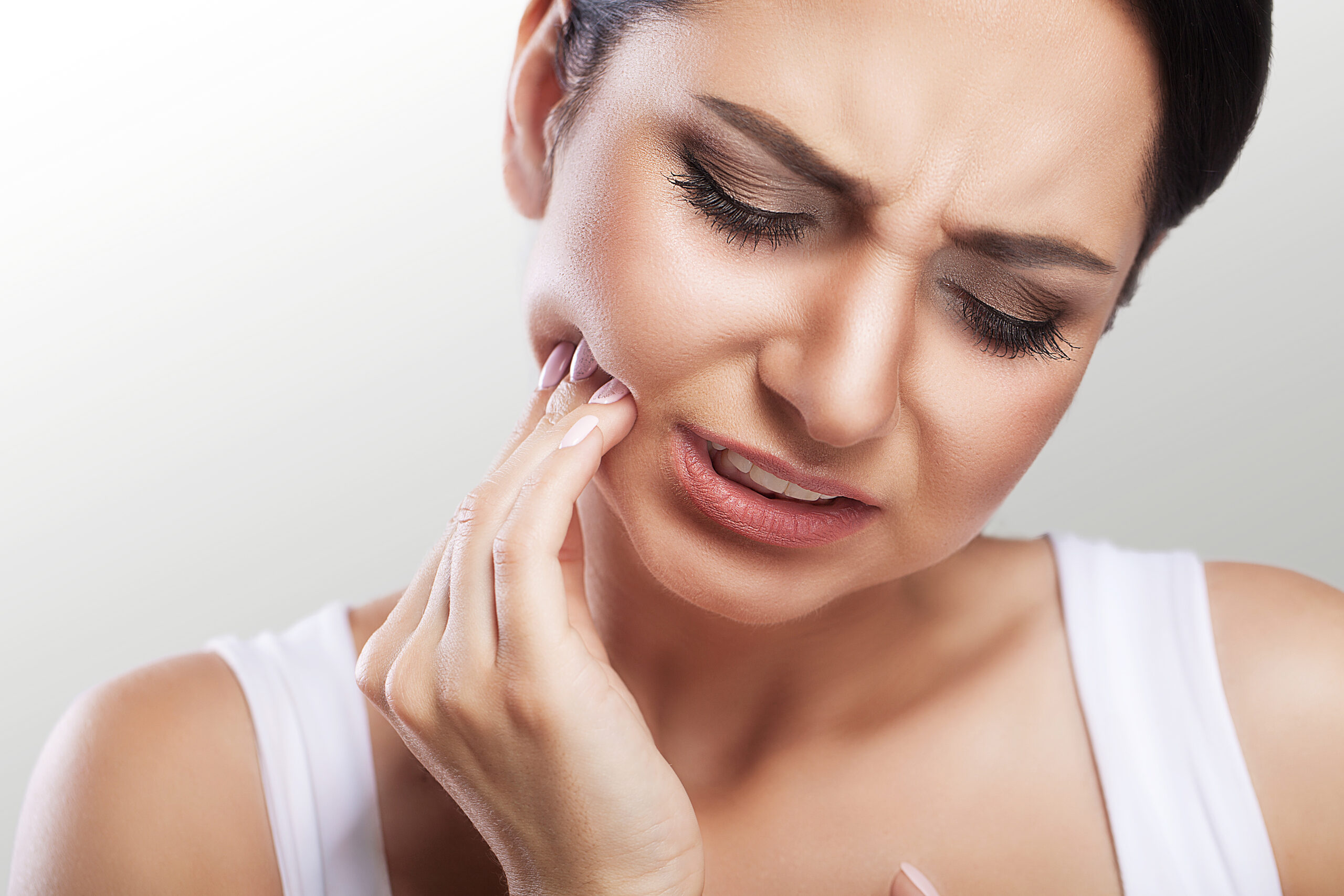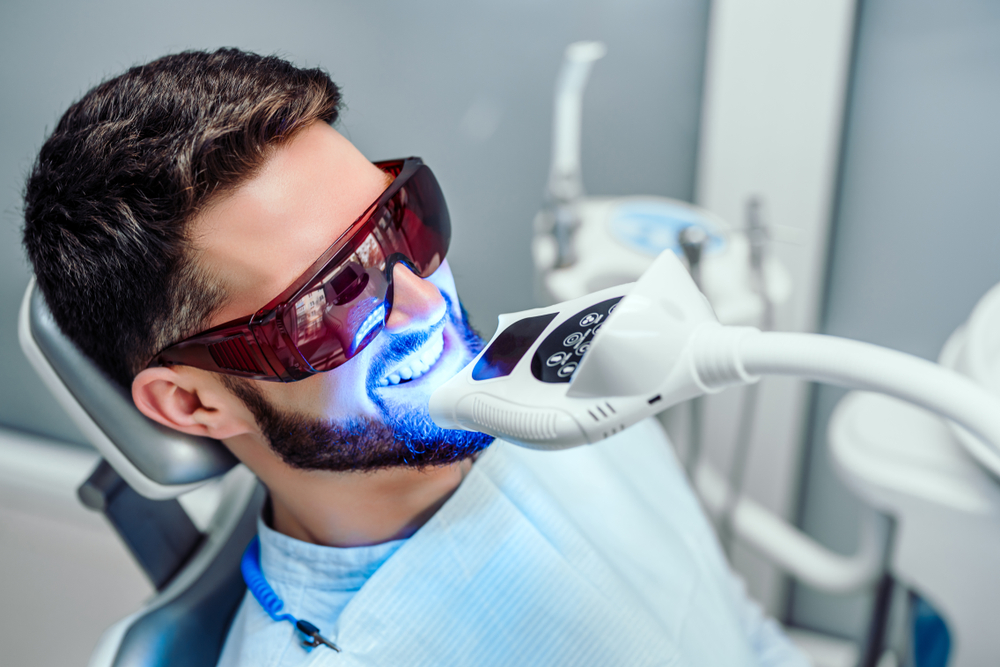When it comes to dental emergencies, knowing what to do can make a big difference. A dental emergency is any situation involving your teeth or gums that requires immediate medical attention. It’s not just about a toothache; it can be anything from a broken tooth to a severe infection. Timely care is essential in these situations. If ignored, these emergencies can lead to more serious health issues or even permanent damage.
Common dental emergencies include things like a broken or chipped tooth, a tooth that’s been knocked out, severe toothache, or a dental abscess (a painful infection at the root of a tooth or between the gum and a tooth). These issues can be scary and painful, but the good thing is that with quick action, many of them can be effectively treated.
Understanding the urgency of these situations is crucial. For instance, if you have a broken tooth, you might need immediate treatment to prevent infection or further damage. On the other hand, a mild toothache might be uncomfortable, but it doesn’t always call for a rush to the dentist. Knowing these differences helps you make the right decision about when to seek help.
Recognizing Dental Emergencies

Recognizing a dental emergency is key to getting the right treatment fast. Not every dental issue is an emergency. For example, if you have a minor toothache, you might just need to schedule a regular dental appointment. But if you have severe pain, swelling, or bleeding, it’s time to take immediate action.
Here’s how you can tell if it’s an emergency:
- Severe Pain: If the pain is unbearable or not going away, it’s a sign you need urgent care.
- Loose or Knocked-Out Tooth: If your tooth is loose or has been knocked out, it’s critical to see a dentist immediately. In some cases, the tooth can be saved if treated quickly.
- Swelling or Abscess: Swelling in your mouth or a pimple-like bump on your gums can be a sign of an infection. These need fast treatment to prevent spreading.
- Bleeding That Won’t Stop: If your gums are bleeding heavily and it doesn’t stop, this could be an emergency.
Being able to tell the difference between a true emergency and something that can wait for a regular appointment is important. It ensures that you get the right care at the right time. Remember, when in doubt, it’s always better to call your dentist and ask. They can help you figure out if you need to come in right away or if it can wait.
In the next sections, we’ll dive deeper into specific types of dental emergencies, how to handle them at home, and when to seek professional care. Remember, at Smile Science Dental Spa, we’re here to help you through any dental emergency with expert, friendly care.
Common Types of Dental Emergencies
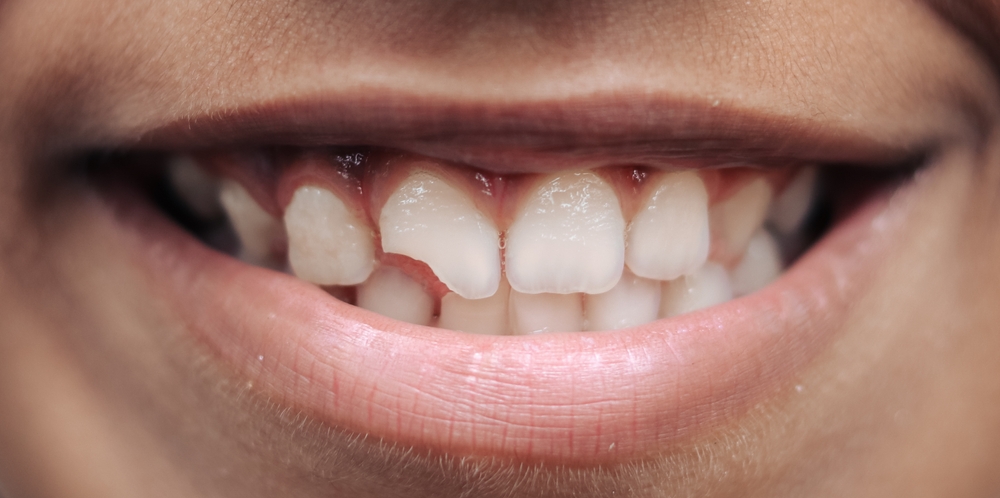
Dental emergencies can be alarming, but knowing what you’re dealing with can help you respond effectively. Here are some common types of dental emergencies and how to handle them:
- Broken Tooth: This can happen from biting something hard, an accident, or even a sports injury. If you have a broken tooth, rinse your mouth with warm water right away to clean the area. If there’s any bleeding, apply a piece of gauze to the area until the bleeding stops. A cold compress on the cheek can help reduce swelling. It’s important to see a dentist as soon as possible, as a broken tooth can lead to further damage or infection if left untreated.
- Severe Toothache: If you’re experiencing a severe toothache, it could be a sign of an underlying problem, like decay or an infection. Rinse your mouth with warm water to clean it out. Gently use dental floss to remove any food caught between your teeth. Don’t put aspirin on your aching tooth or gums; it might burn the gum tissue. If the pain persists, it’s time to see a dentist.
- Lost Filling or Crown: If you’ve lost a filling or crown, your tooth may become sensitive to temperature and pressure. As a temporary solution, you can stick a piece of sugarless gum into the cavity or use over-the-counter dental cement. However, you’ll need to see a dentist soon to properly repair the tooth.
- Dental Abscess: An abscess is a serious infection that can occur around the root of a tooth or in the space between the teeth and gums. It’s often painful and may cause swelling and redness. If you suspect an abscess, it’s crucial to see a dentist as soon as possible. In the meantime, rinsing your mouth with a mild saltwater solution can help ease the pain and draw the pus toward the surface.
First Aid for Dental Emergencies
Knowing what to do in the event of a dental emergency can make a significant difference in the outcome. Here are some first aid tips for dental emergencies:
- Rinse Your Mouth: For most dental emergencies, start by rinsing your mouth with warm water to clean the area and remove any debris.
- Cold Compress: Apply a cold compress to the outside of your cheek to reduce swelling and relieve pain.
- Control Bleeding: If there’s bleeding, apply gentle pressure with a piece of gauze or a tea bag. If bleeding doesn’t stop, it’s important to seek dental or medical attention.
- Save the Tooth: If you have a knocked-out tooth, try to place it back in the socket without touching the root. If that’s not possible, keep it moist in milk or saliva and get to a dentist right away. Do not place the tooth inside of water, as this will cause further damage to the cells outside of the tooth.
- Pain Management: Use over-the-counter pain relievers like acetaminophen to alleviate discomfort, but avoid aspirin, which can increase bleeding.
In all cases, it’s important to follow up with a dentist as soon as possible. They can provide the necessary treatment to prevent further issues and get you back to good oral health. Remember, at Smile Science Dental Spa, we’re equipped to handle a wide range of dental emergencies with expert care and compassion.
Seeking Emergency Dental Care
When faced with a dental emergency, finding prompt and effective care is crucial. Here’s how you can find emergency dental care and what to expect during your visit:
- Finding an Emergency Dentist: In case of a dental emergency, your first call should be to your regular dentist. Most dental offices have provisions for emergency cases or can guide you to an emergency dental clinic. If it’s outside regular office hours, look for a dentist who offers after-hours services. You can also search online for “emergency dentists near me” or ask for recommendations from friends or local healthcare providers.
- Preparing for the Visit: When you call the dentist, describe your symptoms clearly and provide as much detail as possible. This helps the dentist prepare for your arrival. Bring any relevant medical records, a list of medications you’re taking, and your dental insurance information.
- During the Visit: Once at the dental office, expect a thorough examination to assess your condition. The dentist will likely take X-rays to determine the extent of the problem. The immediate goal will be to manage any severe pain or bleeding and address the emergency. This may involve procedures like a dental filling, root canal, extraction, or applying a temporary crown.
- Aftercare Instructions: After your emergency treatment, the dentist will provide aftercare instructions. It’s important to follow these carefully to ensure proper healing. You may also need to schedule a follow-up appointment for further treatment or to complete the repair.
Dental Pain Management: Temporary Solutions
While seeking professional care is essential for dental emergencies, there are temporary solutions to manage dental pain until you can see a dentist:
- Over-the-Counter Pain Relievers: Medications like acetaminophen or ibuprofen can help alleviate dental pain. It’s important to use these as directed and not to exceed the recommended dosage.
- Cold Compress: Applying a cold compress to the face near the area of pain can reduce swelling and numb discomfort.
- Salt Water Rinse: Rinsing your mouth with warm salt water can help clean infections and reduce pain. Mix half a teaspoon of salt in a cup of warm water and rinse gently around the affected area.
- Clove Oil: Clove oil has natural anesthetic properties. Applying a small amount to the affected area can temporarily ease pain. Be cautious and use only a tiny amount, as it can be potent.
- Avoid Certain Foods: Until you can get to a dentist, avoid foods and drinks that are very hot, cold, or sweet, as they can aggravate dental pain.
While these methods can provide temporary relief, they are not long-term solutions. Dental pain often indicates an underlying issue that requires professional treatment. Delaying care can lead to more serious complications, so it’s important to see a dentist as soon as possible.
In the next section, we will explore the importance of handling dental injuries immediately and how to do so effectively. Remember, at Smile Science Dental Spa, we are committed to providing comprehensive and compassionate emergency dental care to get you back to comfort and health.
Handling Dental Injuries
Dental injuries, like knocked-out teeth or fractures, require immediate attention. Here’s how to handle them effectively:
- Knocked-Out Tooth: If a tooth is knocked out, pick it up by the crown (the part that’s visible in the mouth), not the root. Rinse it gently with water if it’s dirty, but avoid scrubbing it. Try to reinsert it in the socket if possible and bite down softly on a piece of gauze or a tea bag to keep it in place. If you can’t reinsert it, keep the tooth moist in milk, saline solution, or even saliva. See a dentist immediately, ideally within an hour, as the chances of saving the tooth are higher.
- Cracked or Broken Teeth: Rinse your mouth with warm water right away. Apply a cold compress to the face to reduce swelling. Avoid eating on that side of the mouth and steer clear of hot or cold foods that can exacerbate the pain. See a dentist as soon as possible.
- Bitten Lip or Tongue: If you bite your lip or tongue severely, clean the area gently with water and apply a cold compress. If the bleeding is significant and doesn’t stop, seek immediate medical attention.
- Objects Caught Between Teeth: Try to gently remove the object with dental floss. Avoid using sharp or pointed instruments as they can cause more harm. If you can’t dislodge the object, visit a dentist.
Remember, quick action is essential in handling dental injuries to minimize long-term damage and improve the chances of successful treatment.
Preventing Dental Emergencies
While not all dental emergencies can be prevented, there are steps you can take to minimize their occurrence:
- Regular Dental Care: Regular check-ups and cleanings are crucial. They can help identify and treat problems early, before they turn into emergencies.
- Good Oral Hygiene: Brush twice a day, floss daily, and use mouthwash to keep your teeth and gums healthy. This reduces the risk of decay and gum disease, which can lead to painful emergencies.
- Wear Protective Gear: When participating in sports or recreational activities, wear a mouthguard to protect your teeth from injury.
- Avoid Hard Foods: Be cautious with hard foods like candy, ice, and popcorn kernels, as they can crack or break teeth.
- Don’t Use Teeth as Tools: Avoid using your teeth to open bottles, cut tape, or perform other tasks that might lead to injury.
- Replace Old Fillings and Crowns: Old dental work can weaken and fail. Regular check-ups will help ensure any restorations are still in good condition.
Taking these proactive steps can significantly reduce the likelihood of experiencing a dental emergency and help maintain your oral health. Remember, at Smile Science Dental Spa, we’re not just here for emergencies; we’re here to help you prevent them too with comprehensive dental care and education.
Understanding Dental Insurance and Emergencies
Navigating dental insurance during emergencies can be confusing, but understanding your coverage can make a big difference. Here are some key points to consider:
- Know Your Policy: Familiarize yourself with your dental insurance policy before an emergency occurs. Understand what is covered, including emergency procedures, and know any deductibles or copays you might be responsible for.
- Emergency Coverage: Most dental insurance plans cover a portion of emergency care, but this can vary. Some policies may cover emergency exams, necessary X-rays, and certain procedures like extractions or temporary restorations.
- Documentation: Keep records of your emergency visit and any treatments received. This documentation is crucial for insurance claims.
- Direct Billing: Some dental offices offer direct billing to insurance companies, making the process smoother. Ask your dentist if this is an option.
- Options for Uninsured Patients: If you don’t have dental insurance, there are still options. Some dentists offer payment plans or discounts for emergency services. Additionally, community health centers or dental schools may offer services at a reduced cost.
Understanding your dental insurance and the options available can alleviate some of the stress associated with dental emergencies and financial concerns.
The Role of Regular Dental Check-Ups
Regular dental check-ups play a crucial role in preventing dental emergencies and maintaining overall oral health. Here’s why they are essential:
- Early Detection and Prevention: Regular check-ups allow your dentist to detect potential problems early, often before they turn into emergencies. This includes identifying early signs of decay, gum disease, or other oral health issues.
- Professional Cleaning: During a check-up, you also get a professional cleaning, which removes plaque and tartar that can lead to decay and gum disease.
- Tailored Dental Advice: Your dentist can provide personalized advice on improving your oral hygiene routine, diet, and lifestyle choices to support your oral health.
- Monitoring Oral Health: Regular visits help your dentist monitor the health of your teeth, gums, and mouth over time, making it easier to spot and treat any changes quickly.
- Maintaining Dental Work: Check-ups are also important for ensuring that any fillings, crowns, or other dental work are in good condition.
Regular dental visits are an investment in your oral health and a key factor in preventing emergencies. At Smile Science Dental Spa, we emphasize the importance of regular check-ups and cleanings as part of a comprehensive approach to dental care. Let us help you maintain a healthy smile and prevent future dental issues.
Staying Prepared for Dental Emergencies
Dental emergencies can happen to anyone, at any time. Being prepared is key to handling these situations effectively. Here are some final takeaways to keep in mind:
- Know What Constitutes an Emergency: Understanding what situations require immediate dental care is essential. This includes severe pain, broken teeth, lost fillings, and signs of infection like abscesses.
- Keep Your Dentist’s Contact Information Handy: Have your dentist’s contact information easily accessible. This saves valuable time in an emergency.
- Maintain a Basic Dental First Aid Kit: Include items like gauze, a small container with a lid (to store a knocked-out tooth), saline solution, and over-the-counter pain relievers.
- Educate Yourself on Basic Dental First Aid: Knowing simple first aid steps can help stabilize the situation until you can get professional care.
- Regular Dental Check-Ups Are Crucial: Regular visits to your dentist can prevent many emergencies from occurring in the first place.
- Invest in Preventive Care: Good oral hygiene practices, a balanced diet, and wearing protective gear during sports can go a long way in preventing dental emergencies.
By staying prepared and informed, you can effectively manage dental emergencies should they arise. Remember, prompt action and preventive care are your best defenses against dental emergencies.
Ensuring Your Smile’s Future: Comprehensive Care at Smile Science Dental Spa
At Smile Science Dental Spa in Glendale, AZ, under the expert guidance of Dr. Richard Dawson and Dr. John Turke, we’re committed to providing exceptional dental care across the full spectrum of dental needs. From routine check-ups and cleanings to emergency responses and specialized treatments, our team is equipped with the knowledge, experience, and technology to deliver top-notch service.
We understand that dental emergencies can be stressful and unsettling. That’s why we’re here to offer not just immediate care but also guidance and support in maintaining your oral health. With Smile Science Dental Spa, you’re not just getting a dentist; you’re gaining a partner in your long-term dental wellbeing. Reach out to us for all your dental needs and experience the difference in care and comfort. Your oral health is our top priority, and we’re dedicated to keeping your smile bright and healthy.


